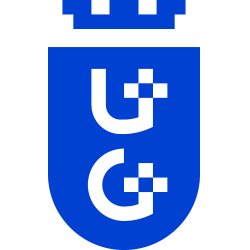
ul. Bażyńskiego 1a 80-952 Gdańsk
Poland
ISNI ID: 0000 0001 2370 4076
GRID ID: grid.8585.0
Małgorzata Łosiewicz
International Business and Global Economy, Volume 34, 2015, pp. 198-209
https://doi.org/10.4467/23539496IB.13.016.3989ublic perception of healthcare personnel in Poland and some other European countries in view of selected studies
The paper presents current trends in the perception of healthcare in Poland and other European countries. The authors present the results of numerous surveys conducted both in Poland and abroad, which demonstrate significant changes in the way healthcare is perceived by the public in individual countries. As the diagnosis of how the medical profession is perceived in Poland gives no grounds for optimism, factors affecting its perception must be identified. This shows healthcare evaluation to be contextually-based, depending on the performance of both individual healthcare establishments and of the whole healthcare system in Poland. Demography has a heavy impact on the evaluation, as the medical services are being rated by the ageing society.
Małgorzata Łosiewicz
Media Business Culture, Issue 1 (2) 2017, 2017, pp. 23-31
https://doi.org/10.4467/25442554.MBK.17.001.7648The article presents various criteria in the perception of scientific youth and maturity seen from various perspectives. The first one assesses the image of a scientist through language and colloquial Polish; the second one presents the results of a research investigating the perception of maturity and the regulating laws in the area of higher education. The third one reveals, how a young and mature scientist is characterized in the media. The discrepancy between the frames seen in the transfers poses questions about the functions of the drawn portrays and their separateness. Among the research methodologies quantitative research has been used as well as corpus analysis, contents analysis, comparative analysis of statistical data and secondary research results.
Małgorzata Łosiewicz
Culture Management, Volume 20, Issue 2, 2019, pp. 241-256
https://doi.org/10.4467/20843976ZK.19.015.10532
Małgorzata Łosiewicz
Media Research Issues, Volume 65, Issue 2 (250), 2022, pp. 63-79
https://doi.org/10.4467/22996362PZ.22.016.15607Throughout the COVID-19 pandemic, proper management of communication has become an important element ensuring the efficient functioning of higher schools. The main objective of this paper is to present modes of communication employed at universities, that will focus on the use of social media. Sixteen largest Polish universities based in 16 voivodeships have been selected for this study. The research data were obtained from questionnaire surveys, in-depth interviews, and analyses of universities’ activity in the most popular social media (i.e. Facebook, Twitter, Instagram). In total, the data collected comprises of 867 respondents’ answers and 7909 mentions of universities found in the analyzed social media (gathered using media monitoring with IT tools). So far, such broad research of the main universities, which are significant centers of region development, have not been conducted. This research is the first detailed elaboration. The results of data analysis have confirmed the authors’ thesis that communication during the pandemic poses a great challenge for universities, a challenge that requires institutions to reorganize their existing modes of communication.
Małgorzata Łosiewicz
Media Business Culture, Issue 2 (7) 2019, 2019, pp. 69-79
https://doi.org/10.4467/25442554.MBK.19.020.11584This article’s objective is to discuss how the media present crisis situations related to violations of moral norms. The authors employ the symbolism of the Ten Commandments, with reference to one of them: “Thou Shall Not Bear False Witness…”.The case of Professor Jan Miodek, a well-known linguist accused of cooperation with the Security Service, was analysed. The communications crisis, triggered by the accusation, had a broad media resonance, hitting the emotions related to the heated political discussion about vetting at universities. The phenomenon of post-truth served as the interpretive context.